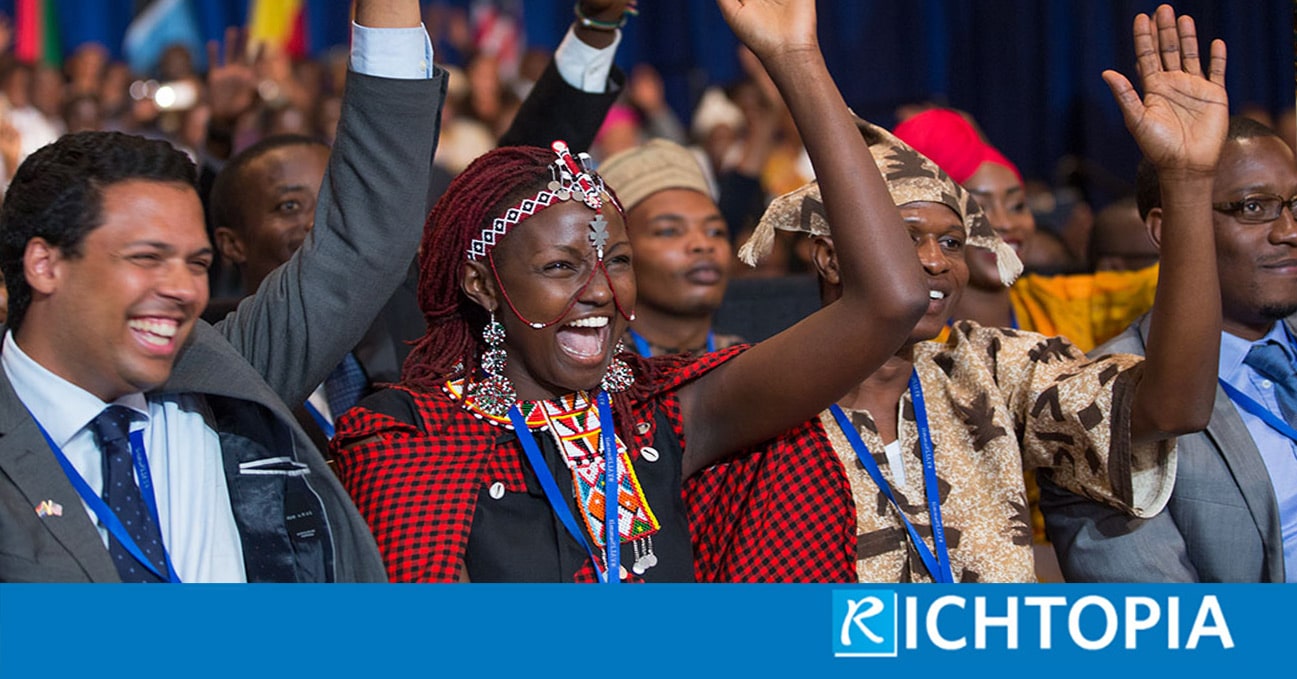Abraham Lincoln, the 16th president of the United States defined democracy as the government of the people, by the people and for the people. Good governance and political stability is a prerequisite for economic growth. However, several African countries leaders have been clinching to power under the disguise of holding democratic elections.
According to Nic Cheeseman, Associate Professor of African Politics at Oxford University, “We have two trajectories, one in which autocratic leadership is becoming more entrenched and it is undermining the independence of electoral commission and in another where there is democratic consolidation and leaders are more willing to step down like in countries like Nigeria.”
A recent development in Rwanda is a typical example of how African leaders has been able to amend constitutions to extend term limit. Uganda and Zimbabwe leaders have been able to use the power of incumbent and parliaments to clinch on to power and even remove term limit. Burundi and the Democratic Republic of Congo have refused to hold elections and hand over power after serving the constitutionally permitted terms.
In cases where an election has held like in Kenya, there have been reports of elections turning violent, rigging of elections, buying votes and, threatening voters to vote for the candidate of their choice. The presidential elections, which has since been annulled by the Kenyan Supreme Court.
Longest serving African Prime Minister/Presidents
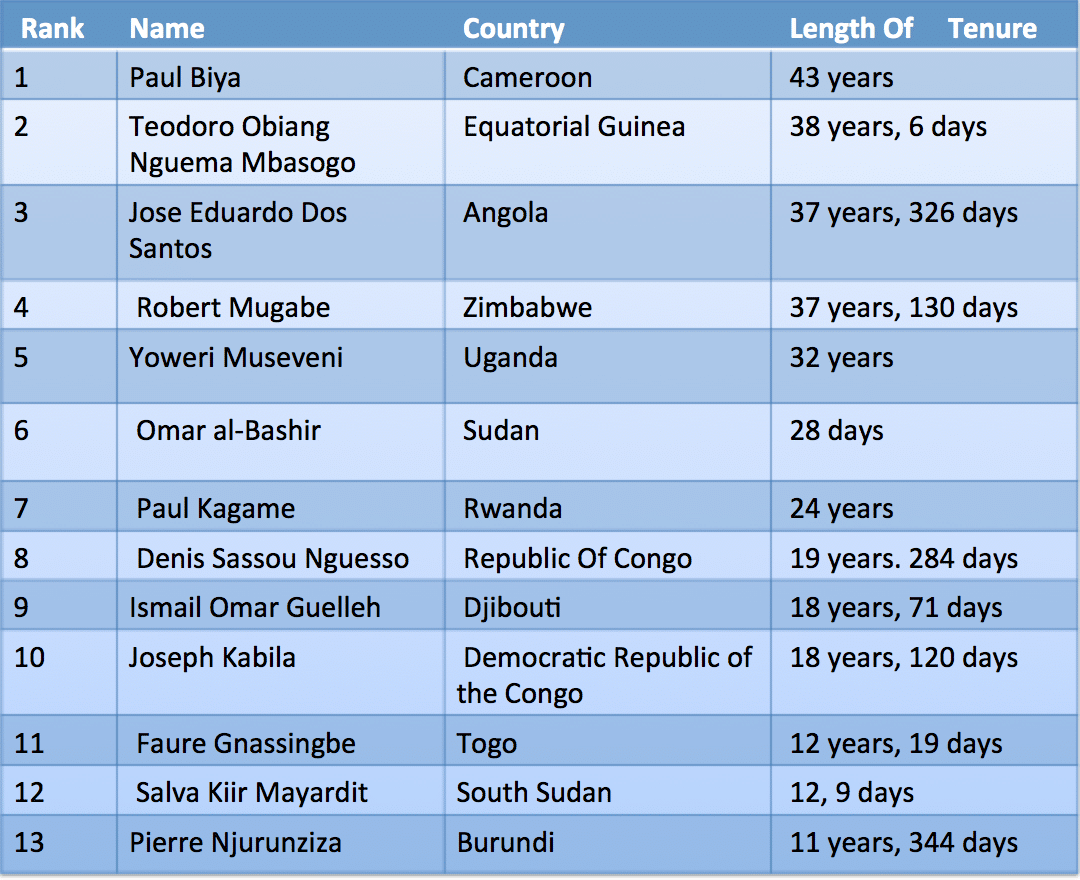
Note: This article was written and submitted before the President of Angola decided against running in the last Presidential elections.
However, there are positive changes taking places in several African countries particularly the Western part of the continent. Countries such as Ghana, Nigeria, Senegal, Benin Republic, Mali, and Burkina Faso have been able to hold credible elections at the polls and peaceful transition of power from incumbency to oppositions.
A question left unanswered is that has autocratic or democracy play more impact on the economic growth and wellbeing of African countries?
This paper makes use of the following methodology for comparative analysis
- The Countries with the serving leaders has ruled for more than 10 years
- The Countries with stable democracy, credible elections and transition of power over the 10 years
- Annual GDP growth rate (%)
- GDP per capita (PPP)
- Political Rights and Civil Liberties
- African Governance Index
Annual growth rate (%) in Longest Serving President countries between 2001 and 2016


In democratic stable countries like Ghana, Malawi, Senegal, annual GDP growth rate over the last 15 years has been remarkably high. However, the 2 most powerful economies in Africa, Nigeria and South Africa have experienced mixed fortunes due to rent seeking and lack of policy continuity.
According to 2016 World report by Freedom House, a report on freedom, political rights, and civil liberties ranked countries on the scale of 100. Several democracy stable countries such as Liberia, Ivory Coast and Nigeria have made a tremendous improvement. While countries with longest serving presidents such as Burundi, Cameroon, Equatorial Guinea were ranked poorly in the freedom report.
Are African Countries really free?
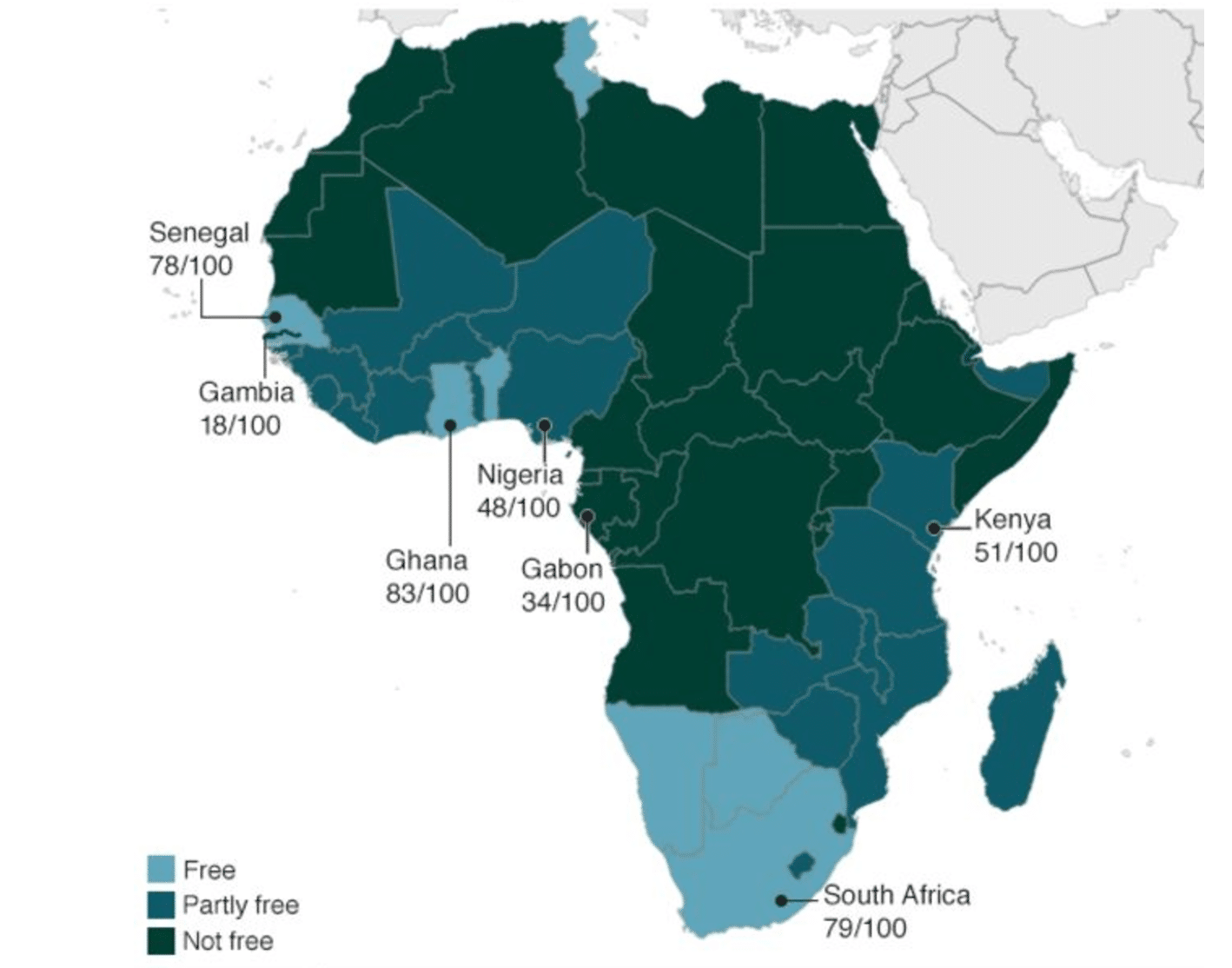
Furthermore, According to Ibrahim Index of African Governance which is a statistical assessment of the quality of governance in every African country.
The index of African Governance assesses progress under four main conceptual categories:
- Participation & Human Rights
- Safety & Rule of Law
- Human Development
- Sustainable Economic Opportunity
Performing remarkably well and showing improvement in this ranking over the last decade were countries such as Zimbabwe, Togo, Rwanda, Angola and Uganda. Surprising those were countries with the longest serving president.
Democracy stable countries such as Zambia, Senegal, and Botswana were ranked well.
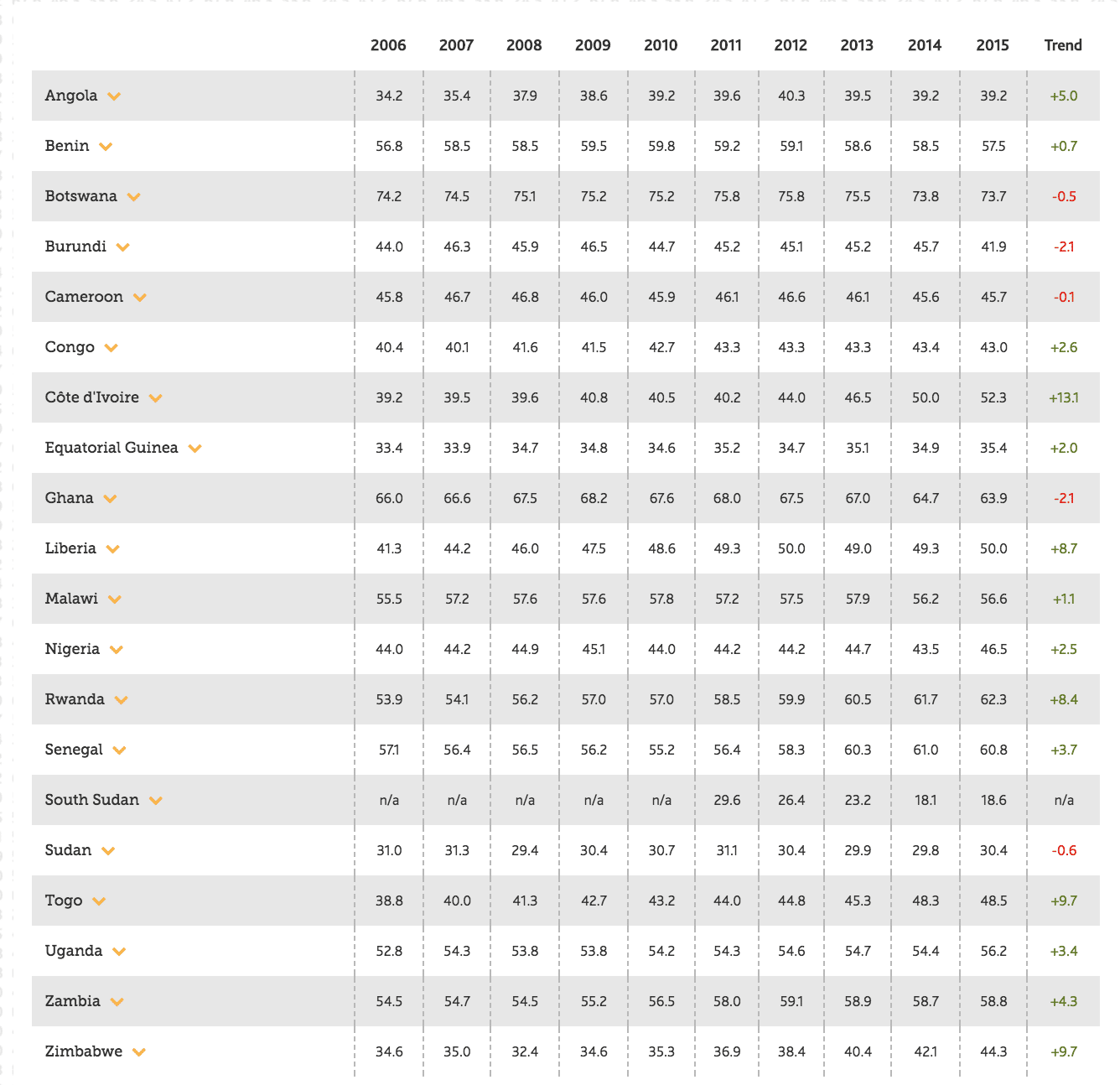
GDP per capita (PPP)
Using GDP per capita at Purchasing Power Parity is considered more acceptable when comparing the standard of living across countries as it seems to take into account the cost of living and the rates of inflations across the countries. Among the top 20 countries ranked in the continent, 5 countries were from the list of the longest serving presidents. Democracy stable countries like Mauritius Botswana dominated the ranking.
List Of African Countries By GDP Per Capita (PPP)
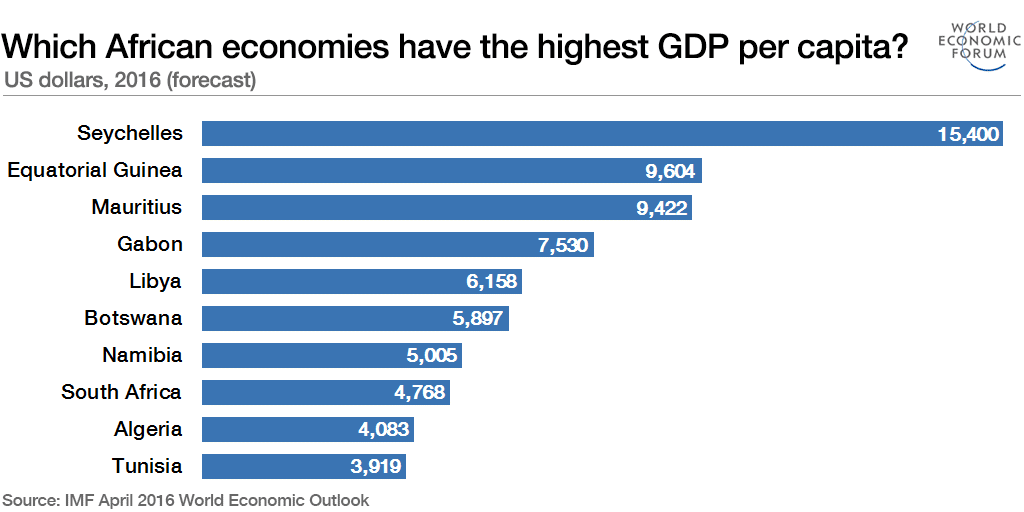
From the comparative analysis in this paper, it is obvious Democratic stable economies enjoyed remarkable economic growth, attracts more foreign investors and there is more confidence in the governments. However, countries like Rwanda has led the argument that an autocratic led countries can perform remarkably, as it tends to enjoy policy stability and there is continuity.
For democracy to survive in the continent, African countries need strong institutions. According to African Democratic Institute, a clear separation of the executive, legislative and judiciary are paramount to the survival of democracy in Africa. In addition, an independent environment for the 3 arms of government to exercise their functions without undue interference. Active and vibrant citizens to call the leaders to check. The Media and Freedom of the press also have a key role in preserving democracy.
Notes:
- Why Presidents Refuse To Relinquish Power; The African Dilemma, African Democratic Institute. Retrieved 2017-08-4
- Freedom House Index, 2017
- Ibrahim Index Of African Governance, 2016
- International Monetary Fund Data Bank, 2017
- “The World Factbook” (PDF). Retrieved 2017-07-30
- The World Bank Data Bank, 2017


